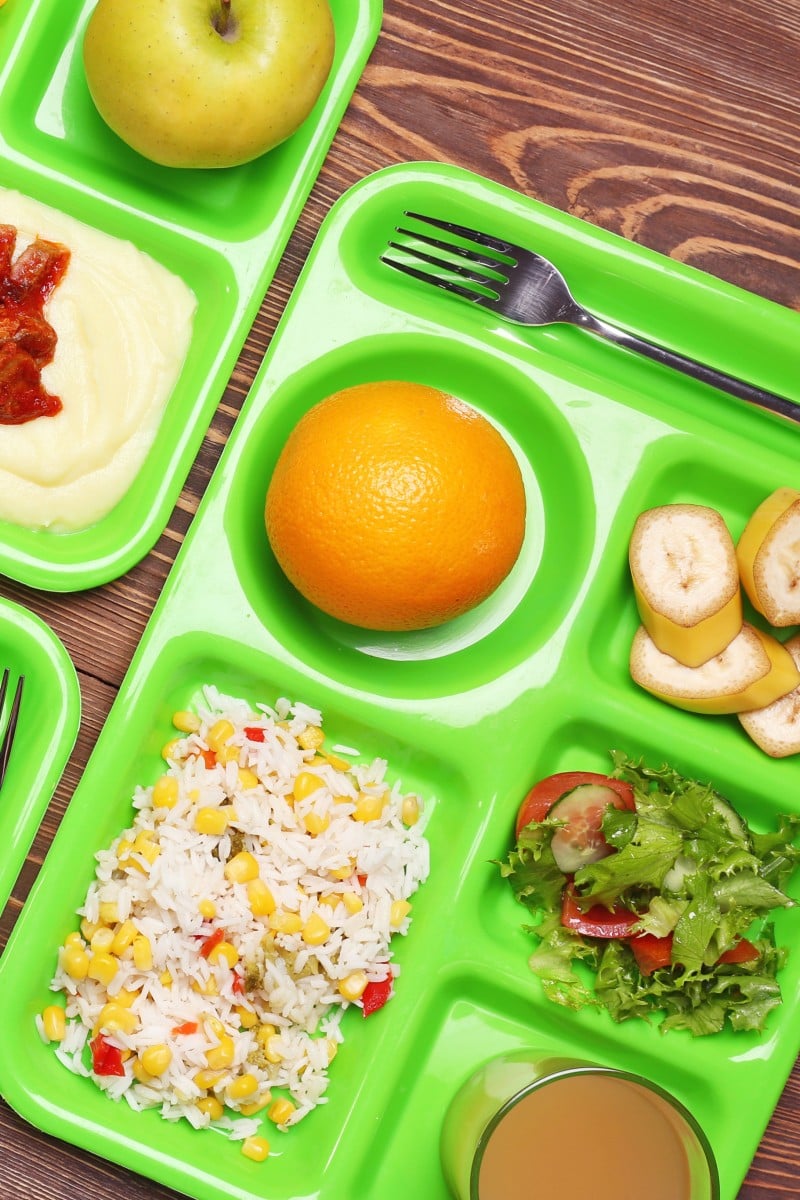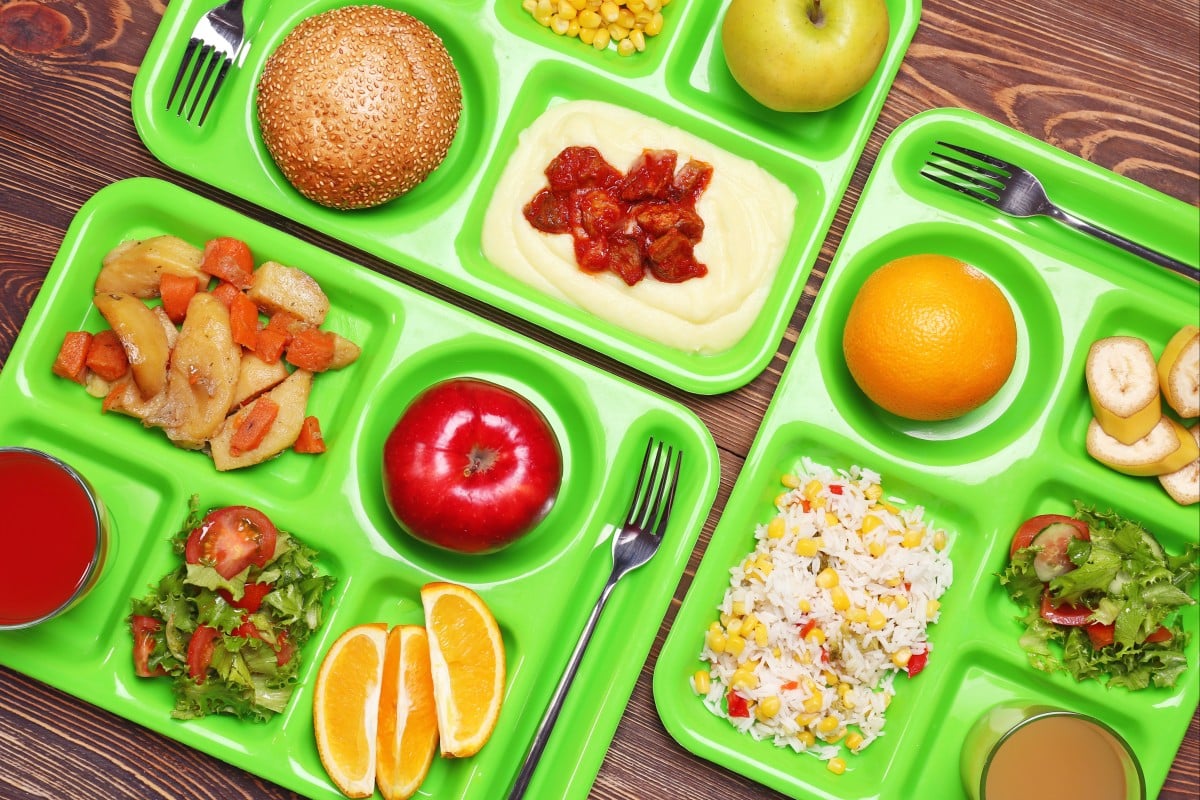
Face Off: Should schools provide free lunches for all students?
- Each week, two of our readers debate a hot topic in a showdown that doesn’t necessarily reflect their personal viewpoints
- In this round, they debate whether children should have to pay for lunch at school
 Should school lunch be free for all students? Photo: Shutterstock
Should school lunch be free for all students? Photo: ShutterstockIf you are interested in joining future Face Off debates, fill out this form to submit your application.
For: Joshua Chan, 16, Carmel Secondary School
The Swedish government’s efforts to provide free school meals have been highly praised. Since the 1940s, free school meals have been offered to all students regardless of whether they are from a wealthy family or a low-income family. This practice has been proven to have favourable effects on students’ well-being.
Should Hong Kong take a leaf out of Sweden’s book? It is my firm belief that Hong Kong should follow suit.
Are smaller class sizes always better for students?
For students, providing free school meals for all could reduce unnecessary comparisons among peers. The classroom is often filled with judgy teens. When students from less affluent families compare their lunchboxes with students from well-off families, they might feel like social outcasts. They are likely to grow self-conscious and become weary of their own lunch. In the long run, this could have detrimental impacts on students’ mental health and social life.
With a standardised lunchbox, every student would receive the same lunch no matter what family they are from. Accordingly, these toxic comparisons would no longer be an issue.
From parents’ perspectives, a free lunch is certainly good news. It would lighten parents’ financial burden. Especially in the age of Covid-19, people from all walks of life are plagued by the double whammy of the pandemic and economic recession. Many families are struggling to make ends meet. Hence, if a free lunch policy is implemented, it would cut household expenditures.
Some critics may claim that there might be a risk of large-scale food poisoning among students, since lunches are often provided by the same food supplier. Luncheon Star is a recent case in point. It is understandable that there might be concerns about food safety.
However, as long as food suppliers are provided with the proper guidelines, and preventive measures such as regular sample food tests take place, I believe that the chance of this happening again would only be one in a million.
To sum up, free lunch has been proven to be beneficial to students and parents. I believe that schools should provide free lunches for all students. It is high time the government heeded the citizens’ needs and put it into practice.Students debate whether ChatGPT should be allowed in the classroom
Against: Caroline Qiu, 13, St Paul’s Co-educational College
In some places around the world, there are programmes to assist students of low-income families. For example, low-cost or free school meals are provided. However, with these free meals, another question arises: should schools provide free lunches for all students?
Imagine that you’re a worker at a restaurant. For the past 10 years, most of your shop’s income was from students who came in to buy meals at lunchtime. Then, one day, the government announces free meals for all students. In the blink of an eye, your restaurant has lost a gigantic part of its income. Your boss is forced to fire you and other workers. Now you’ve lost your job, and you are struggling to make ends meet.
Should Hong Kong abolish ranking systems from report cards?
Now think from the angle of schools. There are hundreds of thousands of students in Hong Kong. To provide a free lunch for all, funds are needed.
On a tight budget, it’s difficult to provide well-balanced, high-quality lunches, and schools might opt for meals based on cost instead of nutritional value. Otherwise, they might have to increase school fees. The government may need to increase taxes to raise funds, so in the end, the free lunch scheme would be meaningless as parents would still be indirectly paying for the meals.
Some may argue that free meals reduce the gap between wealthier and poorer students and prevent bullying. Nevertheless, many may simply choose not to eat school meals. According to the Washington Post, about 77 per cent of 1,300 high school students surveyed said that they did not like the food served, and about half said they ate school lunch two days a week or less. Students from wealthier families might still choose to bring sushi or steak to school.
According to the American Journal of Preventive Medicine, the costs of discarded food are high; if translated nationally for school lunches, about US$1,238,846,400 is wasted every year. If only a few students take the free lunches, the scheme would be a big waste of effort and time.
On the surface, free school meals seem great, but if we look at the whole picture, there are many different perspectives to consider.
